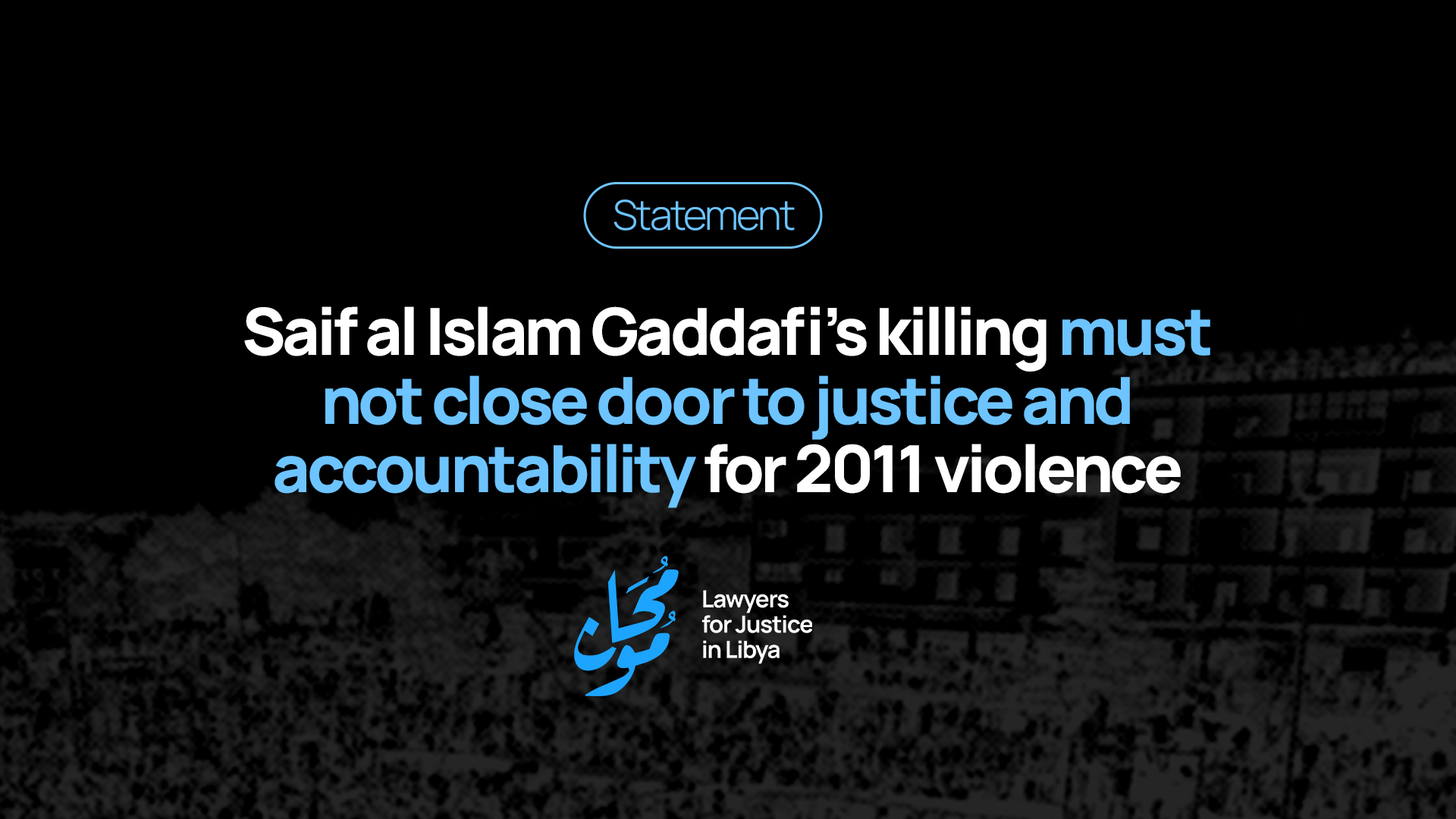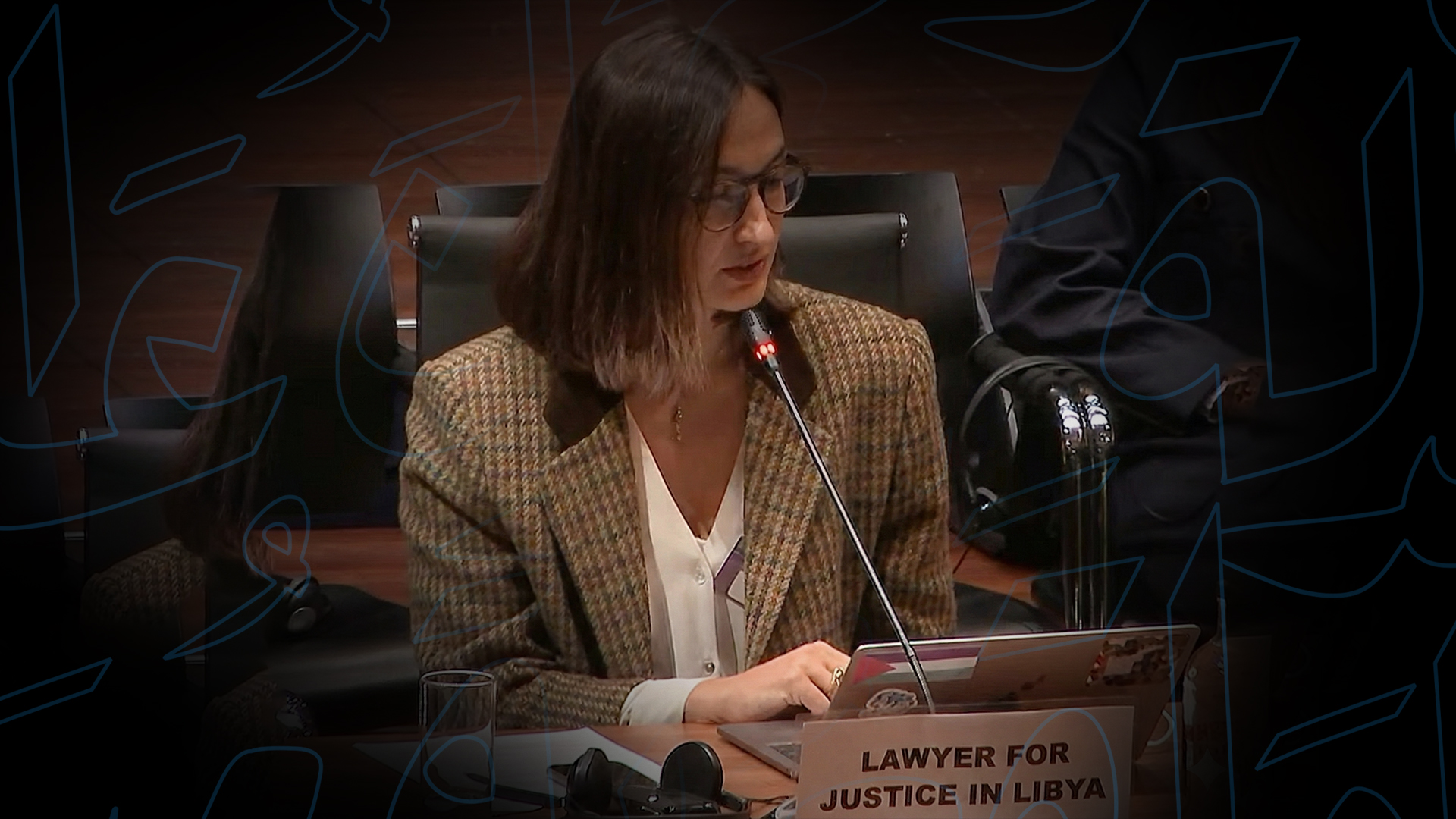LFJL calls for full support of the Fact-Finding Mission (FFM) following nine-month renewal of its mandate
Lawyers for Justice in Libya (LFJL) welcomes the renewal of the mandate of the Independent Fact-Finding Mission on Libya (FFM)1 on 08 July 2022 by the United Nations Human Rights Council (HRC). The renewal of the mandate of the FFM is a necessary step towards addressing rampant impunity in Libya and contributes to accountability and justice efforts for past and ongoing human rights violations and abuses. LFJL urges the HRC and its member states, including Libya, to offer their full support and cooperation to the FFM and provide it with proper resourcing without delay.
However, despite this positive step, LFJL expresses its deepest disappointment that the FFM’s mandate was only renewed for a period of nine months, until March 2023, without the possibility for further extension. The Mission itself indicated in its latest report, issued in June 2022, that more time was required to conduct the investigations necessary to discharge its mandate fully. Nine months is insufficient time for the FFM to conclude investigating the magnitude of violations and abuses committed throughout Libya since 2016. The FFM must continue its work and be given substantial time to prepare concrete and concluding recommendations to the Libyan authorities in regard to achieving transitional justice and national reconciliation, strengthening the national human rights institutions, and restoring the rule of law. Prejudging the mandate of the FFM will be complete by March 2023 is dangerously limiting and will negatively impact the human rights situation on the ground.
Despite numerous obstacles, including UN budgetary constraints and difficulties from COVID-19 pandemic, the investigatory work of the FFM has proven vital in establishing facts related to violations of international human rights law and international humanitarian law committed in Libya since 2016, that in some cases may amount to crimes against humanity and war crimes. To date, the FFM has issued three substantial, high-quality reports that illustrate the severity of the human rights situation in Libya. The reports cite numerous alarming violations including; direct attacks on civilians during the conduct of hostilities, arbitrary detention, enforced disappearances, sexual and gender-based violence, torture, violations of fundamental freedoms, attacks on the judiciary, and persecution and violations against journalists, human rights defenders, civil society, minorities, internally displaced persons and violations of the rights of women and children.
In its reports, the FFM has also highlighted the absence of adequate investigations by the Libyan authorities and underlined the critical need for investigations by independent mechanisms to put an end to the cycle of abuse and restore the rule of law.
LFJL therefore calls upon Libyan authorities, the HRC and its member states, and the international community at large to offer their full support and cooperation to the FFM without delay to allow it to effectively carry out its vital work for the next nine months.
The FFM does not operate in a void and its work and findings must have a tangible impact for the Libyan people. LFJL also calls on the international community to heed the FFM’s previous recommendation to support independent national judicial and international accountability mechanisms for international crimes and human rights violations in Libya; exercise universal jurisdiction as a measure to bring to account perpetrators of international crimes in Libya; and ensure that all agreements with Libyan authorities, particularly on the issue of migration, comply with international human rights law and international humanitarian law.
[1] The FFM was established by the HRC through resolution 43/39 of 22 June 2020 and is mandated to investigate violations and abuses of human rights and international humanitarian law throughout Libya by all parties since the beginning of 2016, including any gendered dimensions of such violations and abuses, and preserve evidence, with a view to preventing further deterioration of the human rights situation, and to ensuring accountability.





